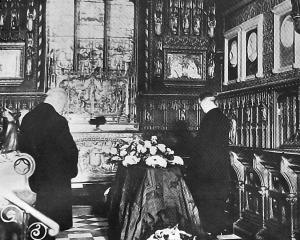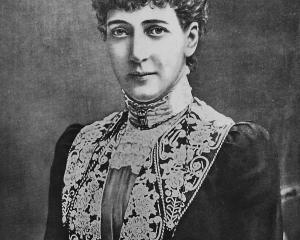She said that although the union had been the pioneer organisation for most reforms appertaining to women, they had not given much thought to women as police.
The National Vigilance Association in London, just prior to the war, had impressed on their respective Governments the desirability of obtaining the assistance of women, including the appointment of police-women, the object being to assist the existing force in some of the more delicate parts of their work in connection with the white slave traffic and fallen women.
At the present time a woman missionary was connected with most police courts, whose services were at the disposal of prisoners.
The missionary had no actual authority, but could give advice when a prisoner cared to listen to it.
The whole question was receiving the attention of the Home Office, and the National Vigilance Association was encouraged to believe that police-women would be appointed, as had been done in certain parts of the United States and Canada.
Dr Sheldon, when in New Zealand, told them of the good which women police had done in America, defining their work as preventing instead of punishing crime.
He said that the police-women were the friends of the young women of the town, and gave advice and guidance to girls, without arresting them, in a way in which no male officer could do.
Women constables also could be of the greatest service in the public parks and places of amusement.
Girls of tender age found patrolling the streets unattended at night could be escorted to their homes, or, if necessary, placed under arrest.
It was also felt that a woman or girl who was molested in the streets would shrink from complaining to a policeman, whereas if there was a woman she could turn to for help, she would not have the same scruples.
As regards New Zealand, Mrs Don said that if women police could prevent girls from leading a life of sin by guarding them from prurient men and keeping them from questionable company and questionable houses, and compelling them to be off the streets at 10 o'clock, she thought the Government might be persuaded to give the scheme a trial.
They had made a demand for women police, but if they considered it their duty to save the heathen, surely they should do their best to save life and preserve character in their own cities.
• On Saturday night and Sunday a fisherman named Peter Heglund, jun., and his mate had a perilous experience in an open whaleboat outside Akaroa Heads.
Leaving Duvauchelle at 5 o'clock on Saturday morning, they proceeded to Akaroa Heads to fish.
When they were returning home, petrol ran short, and, being unable to proceed in the face of a high wind and heavy sea, they anchored to prevent the boat from drifting out to sea.
The launch was swept by the seas, and bailing had to be continually kept up throughout the night and succeeding day to keep the craft afloat.
By a stroke of good luck their distress signal was noticed on Sunday by a fishing craft, the Jean Wilson, which had been fishing inside the harbour and took a run outside before going home for the night.
When rescued Heglund and his mate were in a very exhausted condition, having been without food for 36 hours, and completely worn out by their efforts to keep the boat from swamping. But for the timely rescue both men must have been lost. - ODT, 24.3.1915.
• COPIES OF PICTURE AVAILABLE FROM ODT FRONT OFFICE, LOWER STUART ST, OR WWW.OTAGOIMAGES.CO.NZ












